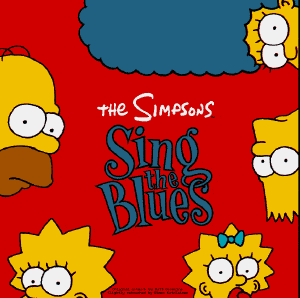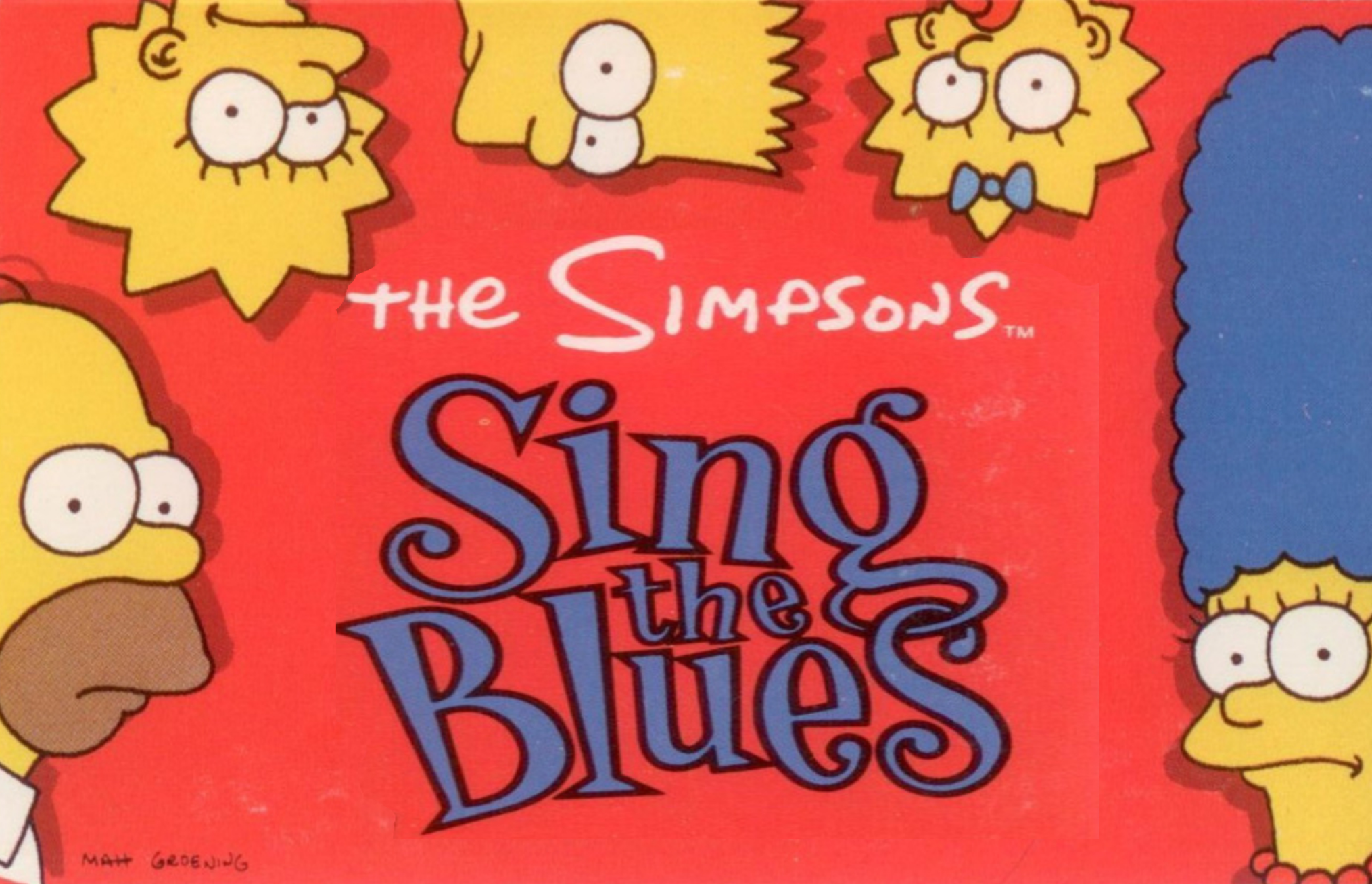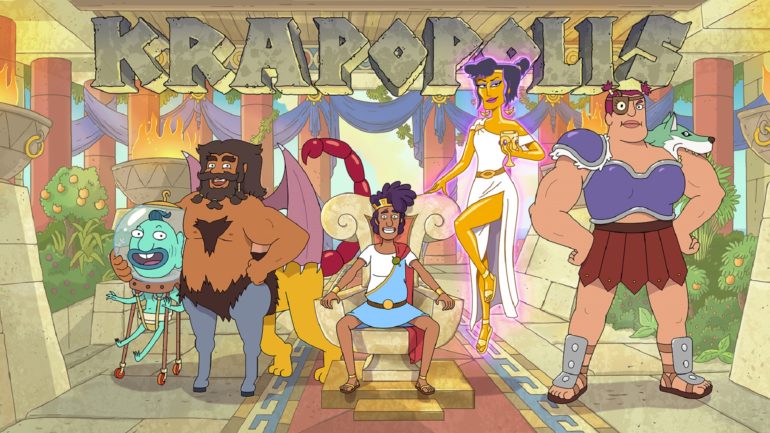Remember When ‘The Simpsons’ Went Platinum and Topped the Charts?
The year 1990 was a significant one for The Simpsons. Premiering the year previous, the series was an overnight success. By the end of the inaugural season, over 30 million viewers were tuning in to watch fresh episodes of the animated middle-class family. The popularity of The Simpsons in the nineties can only be described as a phenomenon. Of course, with any modern cultural phenomenon, there needs to be someone who cashes in. The yellow four-fingered family was plastered on everything from t-shirts to frisbees. And, before a second season could even be delivered, The Simpsons were crossing media with video games and books already in development. The craze would not stop there. While episodes for the second season were being produced, a full-length music album would be recorded and include the likes of DJ Jazzy Jeff, Joe Walsh, BB King, and the biggest name in music at the time, Michael Jackson.
With Christmas approaching, there was a rush to capitalize on The Simpsons success. David Geffen of Geffen Records was eager to get some of that cash. He approached Matt Groening about the potential idea, and the deal was struck. During episode recording in September of 1990, the voice cast would pull double duty and lay down their first studio album.
Legendary producer/writer James L. Brooks is credited with developing the direction and title, The Simpsons Sing the Blues, a parody of Billie Holiday’s Lady Sings the Blues. To further pay homage, “God Bless the Child” initially performed by Holiday on the 1956 album would be covered by Lisa Simpson and “Bleeding Gums” Murphy.
The bullpen of writers for The Simpsons got to work toiling away to create humorous lyrics to fill the upcoming album. Despite being described in the blues genre, the producers decided to add an eclectic mix of musical styles. Out of the ten tracks at least half of the recordings needed to be original music. Four of the songs on the album were direct covers of tracks such as “School Day” by Chuck Berry, “I Love To See You Smile” by Randy Newman, and “Born Under a Bad Sign” by Albert King. In the case of Marge Simpsons’ “Springfield Soul Stew,” it was significantly based on King Curtis’s “Memphis Soul Stew”.

Released in December 1990, The Simpsons Sing the Blues had no shortage of original lyrics and music, and each speaking member of the family had at least one opportunity to shine. Additionally, Mr. Montgomery Burns is the only non-family member to have his own track. “Look At All Those Idiots” was a perfect play on the traditional disgruntled tone of the richest man in Springfield. The only point in the album that ever appeared in the television series was a brief introduction to “Moanin’ Lisa Blues,” with dialogue that appeared in season one’s “Moanin’ Lisa” episode. The conclusion of the album is a duet shared by Bart (Nancy Cartwright) and Lisa (Yeardley Smith) in “Sibling Rivalry” which is much as it sounds like from the title.
At the time, Bart Simpson was gaining popularity with black communities within the United States. Noticing this, Matt Groening was particularly interested in the young troublemaker having an original hip hop track. During the time of The Simpsons Sing the Blues recording, another show had premiered on television that was garnering a prominent success of its own, The Fresh Prince of Bel-Air. A young Will Smith and his musical partner DJ Jazzy Jeff had garnered enough popularity with their comedic hip hop albums that they were able to develop a sitcom pilot which premiered in fall 1990. While Smith would star in the series, DJ Jazzy Jeff was limited to a reoccurring role, which made availability for his musical career. Somehow during this dynamic time of pop culture, Matt Groening and the famous disc jockey would come together to write and produce the original hip hop track featuring Bart Simpson.
“Deep, Deep Trouble” was the second single released from The Simpsons Sing the Blues on March 7, 1991. Lyrics were scribed by The Simpsons creator himself Matt Groening, while music was produced and performed by DJ Jazzy Jeff. Vocals were performed by Bart (Nancy Cartwright) with a minor role from Homer Simpson (Dan Castellaneta).
The premise of “Deep, Deep Trouble” centres around Bart’s antics and how he finds himself getting punished often for things that are not his fault, helping to resonate with troublemaking youth. The track was mildly successful reaching the top ten in multiple countries including New Zealand (10) and the United Kingdom (7) and reached the #1 spot in Ireland. Reception for the song praised Cartwright’s performance and the clever lyrics. However, “Deep, Deep Trouble” would never reach the same acclaim as the single that started it all.
The first original single released off of The Simpsons Sing the Blues was the unforgettable hit, “Do the Bartman”. Anyone alive during 1990 will remember the catchy beat and humorous lyrics of the track. “Do the Bartman” was a craze equal to that of The Simpsons themselves and helped to propel their phenomenon status of the early ’90s. Coinciding with the release of the full-length studio album, the single performed beyond expectations.
Though never released as an official single in the US, the track made waves around the world. “Do the Bartman” managed to reach the top 10 in over a dozen countries and topped the charts in Norway, Australia, New Zealand, Ireland, and the United Kingdom. In Ireland, the single managed to stay in the top spot for nine weeks, a feat that only nine other songs have ever been able to defeat.
Despite the success of “Do the Bartman,” there is some controversy on who originally wrote the track. The King of Pop, Michael Jackson, is well-known for being a fan of The Simpsons in those early days. Matt Groening has retold a fateful phone call he had with the superstar on multiple occasions. During that call, Jackson not only wanted to make an appearance on the show but also offered to write original music for the characters as well. Only in recent years has it been revealed that the role of Leon Kompowsky in season three’s “Stark Raving Dad” was voiced by Jackson himself under the pseudonym John Jay Smith. Aside from the screen performance and creating an original song for the episode, Michael Jackson also played a role in the production of “Do the Bartman”. Unfortunately, Jackson was signed under a competitor’s label at the time, which would mean his collaboration with The Simpsons would break that contract. So, Jackson’s attachment to The Simpsons album was kept under wraps.
There is a discrepancy when it comes to how much Michael Jackson actually had to do with “Do the Bartman”. It has been confirmed that the pop star provided back-up vocals to Nancy Cartwright’s Bart Simpson, though he was never credited. Additionally, Jackson may or may not have been the song’s writer. Credited for writing the track on the album is Bryan Loren, a long-time collaborator with Jackson. Though Matt Groening has expressed that Michael Jackson was the writer of the song, Loren stands by the notion that he is the sole writer. Loren admits that Jackson’s involvement included vocals, creating the title “Do the Bartman”, and insisting that his name appears within the song. The latter of which does happen with the line “you’re bad like Michael Jackson,” and as the song wraps up Bart tells Michael to “eat his heart out”.
Though we may never know the full story of the King of Pop’s involvement with “Do the Bartman”, another famous name is also responsible for the development of the music video. Brad Bird, credited with co-founding Pixar Studios and creating films such as Incredibles and Ratatouille was also once upon a time an animator and director for The Simpsons. Upon multiple requests, Bird eventually agreed to direct the video for The Simpsons first music single. Under a time crunch, Bird was able to produce an entirely original animated short. The video premiered after the second season episode “Bart the Daredevil” in December 1990. With the impressive animation, Bird earned himself an MTV Music Video Award nomination for the best special effects. In June 2009 the video once more aired on Fox ahead of a rerun of The Simpsons with a title card to pay tribute to the late Michael Jackson.
https://youtu.be/wdntmGp7lO4
Inarguably, The Simpsons Sing the Blues was a massive success. The singles alone managed to gain Gold certification in five countries split between them. The album as a whole was at one point the fastest selling recording in the US reaching Double Platinum status. The Simpsons also went Double Platinum in Canada; Gold in the UK, Australia, New Zealand, and Sweden; and Silver in Norway.
The first Simpsons album became an essential piece of memorabilia in what was quickly becoming a collectible franchise during a time when collectibles were at their peak. With such a successful release, a slew of other animated characters began to release their own albums. Barbie, Teenage Mutant Ninja Turtles, the cast of Dinosaurs, and even the Mario Brothers all had recordings released by the next year. But, it was a time when everyone was doing the Bartman.
Personally, I owned this cassette tape as a child. How it came to be in my possession, I cannot recall. However, it sat proudly beside my Fresh Prince, Beastie Boys, and my 1989 Batman soundtrack. In my youth, The Simpsons Sing the Blues was one of my favorite albums, and I most likely listened to it nightly for several weeks. Without a doubt, I had the majority of the songs memorized. Looking at the recording up digitally I was able to re-listen to a significant piece of nostalgia. Each track brought back a flood of memories, and not a moment of the ten songs was forgotten. Though now I can see through the commercial novelty of it, at the time I didn’t care. I had no idea that Michael Jackson was rumored to be on the album. The majority of songs were nothing that I would have bothered to listen to in any other circumstance. The Simpsons were the greatest thing to hit television and to listen to this album was like having a musical episode that I could listen to at any time I wanted.
The critics of the time were much more aware of the albums’ commercialism than the children of the era. Despite reaching 3rd on the US Billboard 200, critics were quick to point out the irony of animated characters accomplishing something that mass-majority of musicians strive their whole lives for and fail. Thrust Magazine expressed their distaste by saying “Most people have to die before they sell so many records, but The Simpsons will never die. They don’t exist”. A major complaint about the music was that it seemed as if money was the only prerogative when producing the album. Though this was a time when The Simpsons bug was infecting everyone, and most critics could see the humour that filled the tracks.
The Simpsons Sing the Blues was an album that was delivered at the right time. Today the choppy hip-hop lyrics performed by cartoon characters would struggle to reach the popularity this recording had in the ’90s. But, at a time when everyone was tuning in Sunday nights to watch new episodes of The Simpsons, it was another piece to the collection. The Bartman became a dance craze equal to that of a viral YouTube video in today’s generation. For some reason, the franchise never followed up with a sophomore album until 1998’s The Yellow Album, when the popularity of The Simpsons had already waned. The Simpsons Sing the Blues was a one-off novelty album that managed to shake up the music industry for a short time. Yet, Nancy Cartwright can still say that she had a #1 hip-hop track which leaves her in the company of Eminem, NWA, and Wu-Tang Clan. So, all of us responsible have to look back embarrassed that we once were part of the Bartman phenomenon.

























I'm hired!